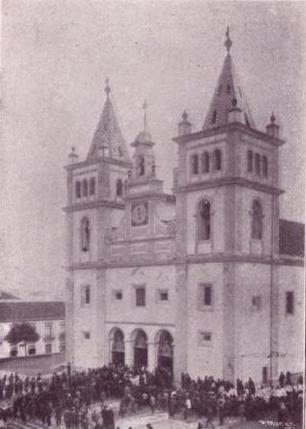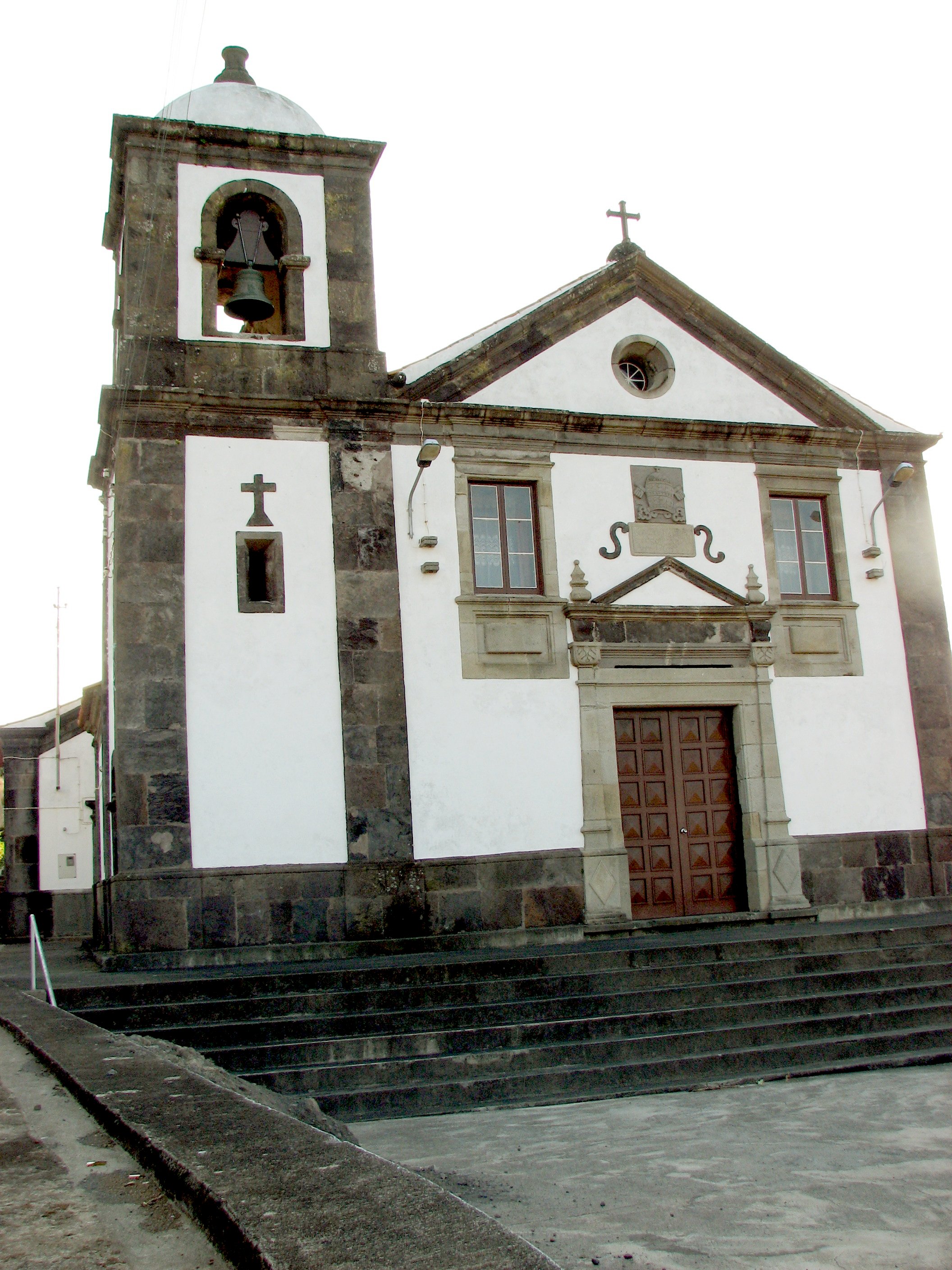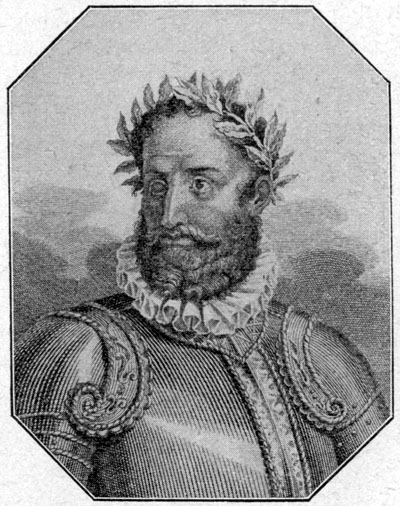|
José António Camões
Father José António Camões (December 1777 – 18 January 1827) was a Portuguese Catholic priest, poet and historian. He wrote several works of satire, including his heroic satire ''O Testamento de D. Burro, Pai dos Asnos'' (''The Testament of D. Burro, Father of the Asses''). Early life He was thought to be the son of friar Manuel de São Domingos, a Franciscan friar in the Convent of São Boaventura (Santa Cruz das Flores, and a Corvino woman, and raised in the public system. He was baptized in the parochial church of Fajãzinha, on 13 December 1777, at about 2 or 3 years of age, and given only the name José, without a family surname. Ironically, he was raised for a while on the island of Corvo, by his maternal grandparents, but accompanied friar São Domingos, as a student, to the Convent of São Boaventura after the friar visited Corvo. After a difficult period in the convent, he abandoned his studies, to work for a farmer in Fajãnzinha (a family relative). Explused from h ... [...More Info...] [...Related Items...] OR: [Wikipedia] [Google] [Baidu] |
Poet
A poet is a person who studies and creates poetry. Poets may describe themselves as such or be described as such by others. A poet may simply be the creator ( thinker, songwriter, writer, or author) who creates (composes) poems (oral or written), or they may also perform their art to an audience. The work of a poet is essentially one of communication, expressing ideas either in a literal sense (such as communicating about a specific event or place) or metaphorically. Poets have existed since prehistory, in nearly all languages, and have produced works that vary greatly in different cultures and periods. Throughout each civilization and language, poets have used various styles that have changed over time, resulting in countless poets as diverse as the literature that (since the advent of writing systems) they have produced. History In Ancient Rome, professional poets were generally sponsored by patrons, wealthy supporters including nobility and military officials. For inst ... [...More Info...] [...Related Items...] OR: [Wikipedia] [Google] [Baidu] |
Angra Do Heroísmo
Angra do Heroísmo (), or simply Angra, is a city and municipality on Terceira Island, Portugal, and one of the three capital cities of the Azores. Founded in 1478, Angra was historically the most important city in the Azores, as seat of the Roman Catholic Diocese of Angra, Bishop of the Azores, government entities, and having previously served as the capital city of Portugal during the Liberal Wars. The population in 2011 was 35,402, in an area of 239.00 km². It was classified as a World Heritage Site, World Heritage site by UNESCO in 1983. Name Angra is the Portuguese language, Portuguese word for "inlet", "cove", or "bay". The epithet ' ("of Heroism", "the Heroic") was granted to the city by Maria II of Portugal, Maria II to commemorate its citizens' Battle of Praia da Vitória, successful defense of the island against a Miguelist assault in 1829. History Some claim that Angra was founded by Álvaro Martins, who sailed with Didrik Pining on his expedition to the New W ... [...More Info...] [...Related Items...] OR: [Wikipedia] [Google] [Baidu] |
1827 Deaths
Eighteen or 18 may refer to: * 18 (number), the natural number following 17 and preceding 19 * one of the years 18 BC, AD 18, 1918, 2018 Film, television and entertainment * ''18'' (film), a 1993 Taiwanese experimental film based on the short story ''God's Dice'' * ''Eighteen'' (film), a 2005 Canadian dramatic feature film * 18 (British Board of Film Classification), a film rating in the United Kingdom, also used in Ireland by the Irish Film Classification Office * 18 (''Dragon Ball''), a character in the ''Dragon Ball'' franchise * "Eighteen", a 2006 episode of the animated television series ''12 oz. Mouse'' Music Albums * ''18'' (Moby album), 2002 * ''18'' (Nana Kitade album), 2005 * '' 18...'', 2009 debut album by G.E.M. Songs * "18" (5 Seconds of Summer song), from their 2014 eponymous debut album * "18" (One Direction song), from their 2014 studio album ''Four'' * "18", by Anarbor from their 2013 studio album '' Burnout'' * "I'm Eighteen", by Alice Cooper commonl ... [...More Info...] [...Related Items...] OR: [Wikipedia] [Google] [Baidu] |
1777 Births
Events January–March * January 2 – American Revolutionary War – Battle of the Assunpink Creek: American general George Washington's army repulses a British attack by Lieutenant General Charles Cornwallis, in a second battle at Trenton, New Jersey. * January 3 – American Revolutionary War – Battle of Princeton: American general George Washington's army defeats British troops. * January 13 – Mission Santa Clara de Asís is founded in what becomes Santa Clara, California. * January 15 – Vermont declares its independence from New York, becoming the Vermont Republic, an independent country, a status it retains until it joins the United States as the 14th state in 1791. * January 21 – The Continental Congress approves a resolution "that an unauthentic copy, with names of the signers of the Declaration of independence, be sent to each of the United States. *February 5 – Under the 1st Constitution of Georgia, 8 counties ar ... [...More Info...] [...Related Items...] OR: [Wikipedia] [Google] [Baidu] |
Sonnets
A sonnet is a poetic form that originated in the poetry composed at the Court of the Holy Roman Emperor Frederick II in the Sicilian city of Palermo. The 13th-century poet and notary Giacomo da Lentini is credited with the sonnet's invention, and the Sicilian School of poets who surrounded him then spread the form to the mainland. The earliest sonnets, however, no longer survive in the original Sicilian language, but only after being translated into Tuscan dialect. The term "sonnet" is derived from the Italian word ''sonetto'' (lit. "little song", derived from the Latin word ''sonus'', meaning a sound). By the 13th century it signified a poem of fourteen lines that followed a strict rhyme scheme and structure. According to Christopher Blum, during the Renaissance, the sonnet became the "choice mode of expressing romantic love". During that period, too, the form was taken up in many other European language areas and eventually any subject was considered acceptable for writers o ... [...More Info...] [...Related Items...] OR: [Wikipedia] [Google] [Baidu] |
Holy See
The Holy See ( lat, Sancta Sedes, ; it, Santa Sede ), also called the See of Rome, Petrine See or Apostolic See, is the jurisdiction of the Pope in his role as the bishop of Rome. It includes the apostolic episcopal see of the Diocese of Rome, which has ecclesiastical jurisdiction over the Catholic Church and the sovereign city-state known as the Vatican City. According to Catholic tradition it was founded in the first century by Saints Peter and Paul and, by virtue of Petrine and papal primacy, is the focal point of full communion for Catholic Christians around the world. As a sovereign entity, the Holy See is headquartered in, operates from, and exercises "exclusive dominion" over the independent Vatican City State enclave in Rome, of which the pope is sovereign. The Holy See is administered by the Roman Curia (Latin for "Roman Court"), which is the central government of the Catholic Church. The Roman Curia includes various dicasteries, comparable to ministries and ex ... [...More Info...] [...Related Items...] OR: [Wikipedia] [Google] [Baidu] |
Alexandre Da Sagrada Família
Alexandre da Sagrada Família (Horta, 22 May 1737 – Angra, 22 April 1818), born Alexandre José da Silva (sometimes referred to as António Ferreira da Silva in biographies), was the 25th Bishop of Angra, governing between 1816 until his death in 1818. The first Bishop born in the Azores (and only repeated in the 20th century by António de Sousa Braga), known as a poet, he was the paternal uncle of Almeida Garrett, and stayed with his parents when he visited Terceira. Biography Early life Alexandre José da Silva was born in a house along ''Rua de Santa Ana'', in Horta, on the island of Faial, eldest son of ensign José Ferreira da Silva (native of Santa Catarina do Monte Sinai in Lisboa), and Antónia Margarida Garrett (of Madrid).Carlos Melo Bento (2008), p.82 He was baptised by ouvidor Domingos Pereira Cardoso, on 2 June 1737, in the parochial church of Horta, in the presence of his godparents Dr. Alexandre de Moura and his wife, D. Isabel Maria. He was one of ten ch ... [...More Info...] [...Related Items...] OR: [Wikipedia] [Google] [Baidu] |
Diocese Of Angra
The Roman Catholic diocese of Angra ( pt, Diocese de Angra, la, Dioecesis Angrensis) is a Roman Catholic diocese comprising the Portuguese archipelago of the Azores. The see is located in Angra do Heroísmo, in the Terceira island. The current Ordinary is Armando Esteves Domingues. History The Azores, like all the islands and lands discovered during the Portuguese Age of Discoveries, began as jurisdictions of the Order of Christ, under the direction of the vicar of Tomar ( la, vicarius nullius). Upon the creation of the Bishopric of Funchal, in 1514, the communities of the Azores began to fall within the jurisdiction of the Bishop of Funchal. As the result of a petition by King John III of Portugal, Pope Clement VII created the Bishopric of São Miguel (São Salvador), but this patriarch died (31 January 1533) before a Papal bull was issued. The request to Clement VII included the creation of two new Dioceses, one for the islands of the Azores and the other for the settlements ... [...More Info...] [...Related Items...] OR: [Wikipedia] [Google] [Baidu] |
Dom (title)
Don (; ; pt, Dom, links=no ; all from Latin ', roughly 'Lord'), abbreviated as D., is an honorific prefix primarily used in Spain and Hispanic America, and with different connotations also in Italy, Portugal and its former colonies, and Croatia. ''Don'' is derived from the Latin ''dominus'': a master of a household, a title with background from the Roman Republic in classical antiquity. With the abbreviated form having emerged as such in the Middle Ages, traditionally it is reserved for Catholic clergy and nobles, in addition to certain educational authorities and persons of distinction. ''Dom'' is the variant used in Portuguese. The female equivalent is Doña (), Donna (), Doamnă (Romanian) and Dona () abbreviated D.ª, Da., or simply D. It is a common honorific reserved for women, especially mature women. In Portuguese "Dona" tends to be less restricted in use to women than "Dom" is to men. In Britain and Ireland, especially at Oxford, Cambridge, and Dublin, the word is use ... [...More Info...] [...Related Items...] OR: [Wikipedia] [Google] [Baidu] |
Ponta Delgada, Santa Cruz Das Flores
''Ponta Delgada'' is a rural civil parish in the Azorean municipality of Santa Cruz das Flores, on the Portuguese island of Flores. The population in 2021 was 280, in an area of 17.65 km2. It is situated along the northern coast from the regional capital. It is the third oldest religious parish on the island of Flores, only preceded by the communities of Lajes and Santa Cruz das Flores. History The religious parish of São Pedro da Ponta Delgada was one of the first three religious parishes on the island of Flores. The historical chronicler, Father Gaspar Frutuoso, stated that, at the end of the 16th century, Ponta Delgada was a small population of thirty neighbors and one chapel. A century later, Friar Agostinho de Montalverne referred to 650 inhabitants occupying 140 homes: essentially claiming it was the largest population on the island. Diogo das Chagas first placed the colonization of this area at about 1571, attaining the position of parish immediately. It included ... [...More Info...] [...Related Items...] OR: [Wikipedia] [Google] [Baidu] |
Luís De Camões
Luís Vaz de Camões (; sometimes rendered in English as Camoens or Camoëns, ; c. 1524 or 1525 – 10 June 1580) is considered Portugal's and the Portuguese language's greatest poet. His mastery of verse has been compared to that of Shakespeare, Milton, Vondel, Homer, Virgil and Dante. He wrote a considerable amount of lyrical poetry and drama but is best remembered for his epic work '' Os Lusíadas'' (''The Lusiads''). His collection of poetry ''The Parnasum of Luís de Camões'' was lost during his life. The influence of his masterpiece ''Os Lusíadas'' is so profound that Portuguese is sometimes called the "language of Camões". The day of his death, 10 June OS, is Portugal's national day. Life Origins and youth Much of the information about Luís de Camões' biography raises doubts and, probably, much of what circulates about him is nothing more than the typical folklore that is formed around a famous figure. Only a few dates are documented that guide its trajectory. ... [...More Info...] [...Related Items...] OR: [Wikipedia] [Google] [Baidu] |
Historian
A historian is a person who studies and writes about the past and is regarded as an authority on it. Historians are concerned with the continuous, methodical narrative and research of past events as relating to the human race; as well as the study of all history in time. Some historians are recognized by publications or training and experience.Herman, A. M. (1998). Occupational outlook handbook: 1998–99 edition. Indianapolis: JIST Works. Page 525. "Historian" became a professional occupation in the late nineteenth century as research universities were emerging in Germany and elsewhere. Objectivity During the ''Irving v Penguin Books and Lipstadt'' trial, people became aware that the court needed to identify what was an "objective historian" in the same vein as the reasonable person, and reminiscent of the standard traditionally used in English law of "the man on the Clapham omnibus". This was necessary so that there would be a legal benchmark to compare and contrast the scholar ... [...More Info...] [...Related Items...] OR: [Wikipedia] [Google] [Baidu] |








